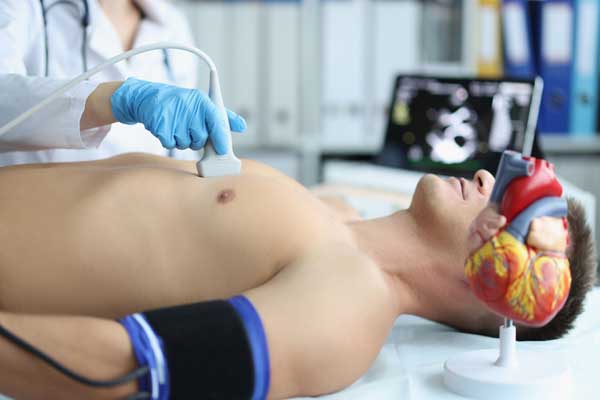Are you fascinated by the intricate workings of the human heart? Have you ever wondered what it takes to become a cardiologist and save lives in critical moments? In this article, we’ll dive deep into the world of cardiology, exploring what it means to be a cardiologist, the educational path to get there, and the exciting aspects of this medical specialty. Dr. Jubbal from MedSchoolInsiders.com is here to guide us through this captivating journey. So, if you want to be a cardiologist, keep reading!

What Does It Mean to Be a Cardiologist?
Cardiology is the specialty of medicine that deals with the heart and specialized circulatory pathologies. In this section, we’ll uncover the core responsibilities of cardiologists, including handling heart attacks, hypertension, high cholesterol, and irregular heart rhythms. You’ll discover why cardiology is a unique field that combines medicine and procedural skills.
The Educational Path to Becoming a Cardiologist
To become a cardiologist, you must follow a specific educational path. Dr. Jubbal explains that it all begins with three years of internal medicine residency. After that, you have the option to subspecialize in cardiology, requiring an additional three years of training. For those interested in further specialization, such as interventional cardiology, the journey may extend by one or two more years. If pediatric cardiology is your calling, the path differs slightly.
The World of Cardiothoracic Surgery
While cardiology focuses on non-invasive procedures, cardiothoracic surgery is an entirely different realm. Dr. Jubbal outlines the paths to becoming a cardiothoracic surgeon, which involves surgical residencies. This section provides clarity for those torn between cardiology and cardiothoracic surgery.
Insights from a Practicing Cardiologist
Dr. Rohin Francis, a practicing cardiologist, takes the stage to provide valuable insights into the daily life of a cardiologist. He discusses the various subspecialties within cardiology, including intervention, heart failure, electrophysiology, devices, imaging, and more. You’ll gain a clear picture of the multifaceted nature of cardiology.

A Day in the Life of a Cardiologist
Ever wondered what a typical week looks like for a cardiologist? Dr. Francis shares his weekly routine, balancing procedures, clinics, coronary care, and research. This section sheds light on the dynamic nature of a cardiologist’s work and the academic aspect of the field.
Rewards and Challenges of Cardiology
Cardiology offers substantial financial rewards and the opportunity for involvement in the pharmaceutical and device industry. Dr. Jubbal explores the immediate results and exciting advancements in the field. However, he also addresses the challenges, including the demanding workload and the need to maintain a work-life balance.
Is Cardiology Right for You?
What kind of person is suited for a career in cardiology? Dr. Jubbal outlines the traits and interests that align with this specialty, emphasizing the importance of maintaining a healthy work-life balance to prevent burnout. This section helps readers determine if cardiology is the right path for them.
Conclusion
In conclusion, cardiology is a captivating field that combines medical knowledge with procedural expertise. It offers immediate results and the opportunity to save lives. However, it comes with its unique challenges. Whether you’re considering a career in cardiology or simply curious about this medical specialty, this article has provided valuable insights. To learn more, don’t forget to check out Dr. Rohin Francis’s channel, MedLife Crisis. If you’re ready to embark on this journey, remember that cardiology is a rewarding specialty that continues to evolve, making it an exciting choice for those passionate about the heart and its complexities.
